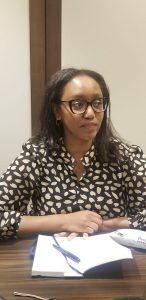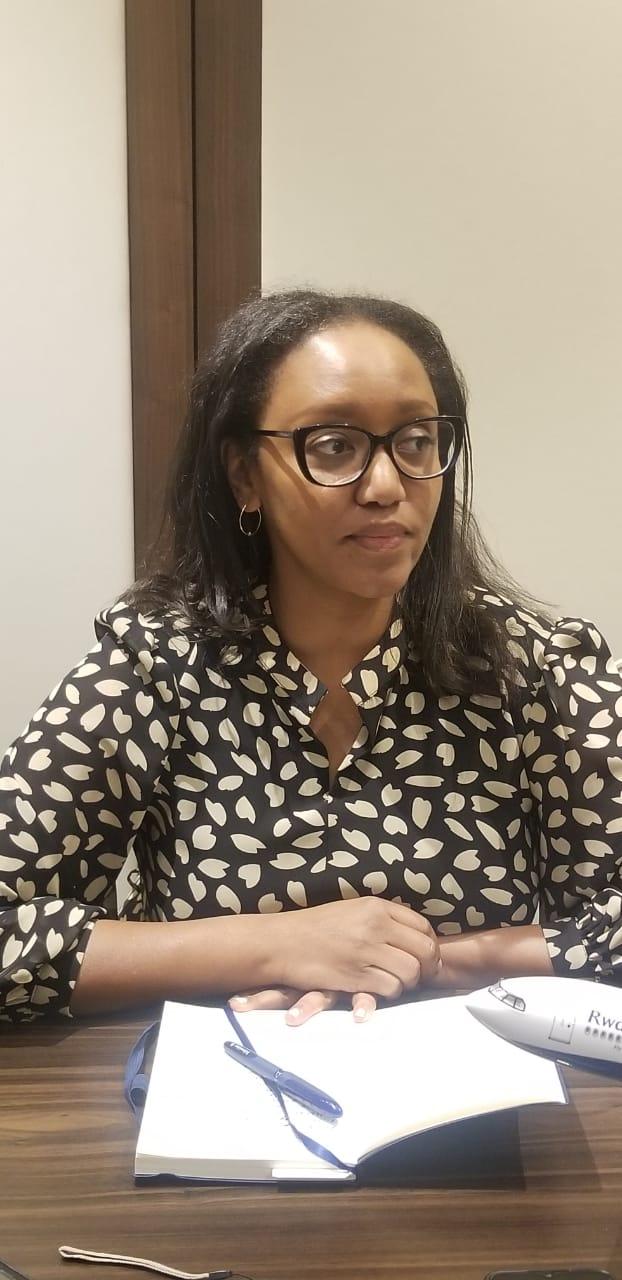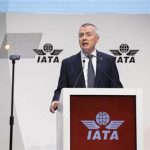
The Chair of the International Air Transport Association (IATA) Board of Governors (BoG) who is also the CEO of Rwand Air, Yvonne Manzi Makolo said that the cost of running airline in Africa is highest in the world due to high taxes, high price of aviation fuel, high insurance premium, high cost of spares and high cost of personnel.
She said the high cost of operation pushes up the cost of ticket and reduces the number of people who can afford to travel by air in the continent.
Speaking to selected journalists on the sideline of the on-going 79th IATA AGM and World Air Transport Summit in Istanbul, Turkey, Makolo said the cost of aviation fuel in Africa is still the highest despite the fact that prices of the product is coming down in other regions and insurance premium is still very high because most countries on the continent are designated to have high country risk and airlines that operate in these countries are made to pay exorbitant insurance premium.
Makolo who assumed duties yesterday as IATA BoG in a one-year tenure, frowned at the high taxes and charges paid in Africa and said that this discourages the growth of air transport in the region and increases the cost of flight ticket, noting that as catalyst to economic development, air transport should not be seen as luxury; rather, it should be seen as the fastest and most efficient means of connecting people who include entrepreneurs, families, policy makers and others who drive the economy of any nation.
“The main message I intend to send to government policy makers in Africa is that aviation is not a luxurious means of transportation. I think in a lot of African markets, the perception is that flying is a luxury. But it is a necessity because giving how vast our continent is, it is really important to find the most efficient way to transport people and that is aviation. So taxing aviation that highly makes it a luxury instead of being an enable. Air transport should be for families to connect, for businesses to be transacted across the continent. So, we really need to have a second look at what we are doing in terms of charges. Because if you look at your ticket price, more than half of it are taxes or fees that we are paying. And if we can reduce that and make flying cheaper, then we grow the pie and we have a lot more people flying and the government benefit from that as well because now we move to volumes, instead of just restricting the pie to the small group of people who can afford it. So, the pie will just remain that small with high taxes,” she said.
Makolo said that African airlines pay more for fuel than other operators in the other continents of the world, remarking that fuel surcharge, which government aviation agencies collect from airlines is one of the factors that increase the cost of flight tickets paid by travellers.
“Again, in terms of Jet fuel (aviation fuel) within the continent, we are already paying such a high premium, the cost of the product is two times, sometimes even five times more than what airlines in Europe and the Middle East are paying for fuel, which puts us already at a disadvantage. That is another reason why the ticket prices are so high because of the fuel surcharge. That is another reason why the ticket prices are so high because of the fuel surcharge. So we recognize even as African airlines the importance of Sustainable Aviation Fuel (SAF) in terms of achieving the Net zero (zero emission) target. But then we are already operating at a disadvantage with such high cost. How are we going to be able to find SAF?
“This means government needs to incentivize the producers, because even within the continent, we have the raw materials for it but are people willing to invest in it to produce it? and if they are producing it, will they produce enough of it? and if they produce enough of it, will we be able to afford it? because it is very expensive, again ticket prices will shoot up and traffic will go down. So, it is a very trickish dilemma that we are facing right now,” Makolo said.
On Rwandair operations in Nigeria, Makolo said the Nigerian market is key market for the airline, adding, “for Rwand Air, it is the biggest market after Rwanda and it is growing. But the biggest challenge we face right now with Nigeria, which is limiting our operations there, is repatriating our money. So, we have a lot of money stuck in the country which is significant. And for a small and medium size airline like ours, that really put a strain on our cash flow. So that also constrains what we can do within the market because ideally, we should be flying not only daily but maybe double daily (twice a day to Abuja and Lagos). But we are not able to do that because, when are we going to really get our money out?” she queried.
The Rwandair CEO said it was this reality that forced the airline to shrink its market in Nigeria, hoping to expand when it gets its trapped revenues from the country.
“So, we had to shrink a bit of our operations both to Lagos and Abuja. But we hope that once this issue is resolved, we can really go all out and capture that market. Because it is a strong market, so we are looking forward to growing our presence there. And the same thing within the African continent. The potential is huge, there are still a lot of markets which are not served well, so we are looking forward to fill in those gaps. Now even with the implementation of the African Continental Free Trade Area (AfCFTA), the potential grows even more. So we are really focused on connecting Rwanda to the rest of the African countries and beyond the continent.






